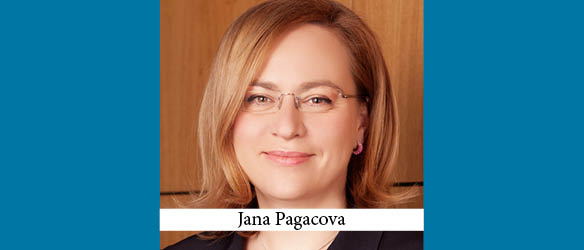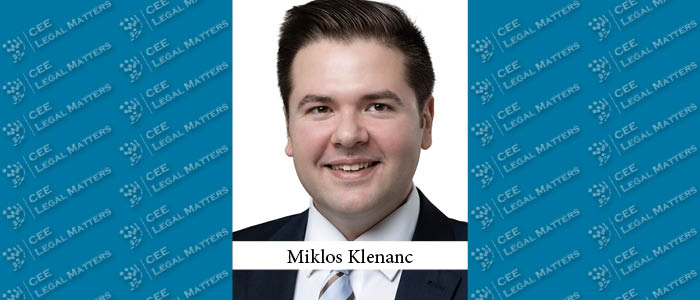One of the four announced priorities of the Slovakian presidency is the “modern single market,” according to Squire Patton Boggs Partner Jana Pagacova. Part of this, she explains, is the aim to develop unifying projects such as an energy union and the digital single market. And a “big rush in the legal environment” that makes up a significant part of the digital single market process, she explains, is to create an “electronic mailbox” system for all individuals and legal entities in the country through which they will receive all statutory communications from the court.
This “electronic mailbox” takes the form of a central government portal which all businesses, and therefore also lawyers, will need to access. Unfortunately, Pagacova says, not everyone activated their mailboxes by the original July 1st deadline, so a new deadline has been set for December 31st, 2016. The new system should, Pagacova believes, make things easier if it works as intended — but she see that’s a fairly big “if”, as technical problems and some uncertainties about how the system would work for non-Slovak internationals who don’t have the state-provided identification required to obtain the chips necessary to activate their mailboxes remain.
Turning to other matters, Pagacova says the biggest news is the July 1st entry into effect of three new Civil Procedure Codes to replace the one Communist-era Code that existed previously. These codes — the Civil Dispute Procedure Code, the Civil Non-Dispute Procedure Code and the Administrative Procedure Code — are currently the primary subject of conversation in the legal community, especially as neither judges nor practitioners have much experience with them yet. Both attorneys and judges are going through lots of intense internal and external trainings, Pagacova reports, to come up to speed, but she thinks it may be another two years before the market has fully adapted to all significant changes, which are perhaps most notable in the changing responsibility for judges (who are now much more limited to ruling based on the submissions of the parties) and in the various preliminary proceedings judges are empowered to encourage the parties to pursue to find possible solutions to disputes before trial.
The new electronic mailbox system, Pagacova points out, is among the many new procedures set out.
Ultimately Pagacova believes the new Codes are a “good idea,” but “all new laws require a working out of kinks in practice, so we’ll have to see how it plays out.” She points to some uncertainty in the market about the new Codes, and repeats that it will take a few years to really begin working as planned.
Another newly-enacted law of significance is the Act on Criminal Liability of Legal Persons, Pagacova says, which also came into effect on July 1st. This law calls for the imposition of criminal liability on corporations and other legal entities, and Pagacova claims it’s extremely significant “on the corporate governance rules for Boards of Directors to avoid company’s criminal actions and liability imposed as a result of actions of employees." She reports that she and her colleagues are kept busy at the moment by preparing presentations and trainings to various boards, so they can “see when potential risks may arise.” She has no doubt of the importance of the issue, noting, “I think that all boards should deal with this.”
In part because of the increasing number of regulatory and legislative changes, including also for example the risk of criminal liability, Pagacova says more General Counsels are on Boards of Directors than ever before, and “the trend is for them to develop strong in-house legal departments.” As a result, she says, the market is becoming ever-more competitive, and private practitioners have to specialize more to ensure they’re providing valuable expertise, insight, and advice. In addition, making sure they are and stay familiar with the industry and the sector, so they don’t have to bill for the process of educating themselves before advising the client, is also a requirement of the modern legal market.



























